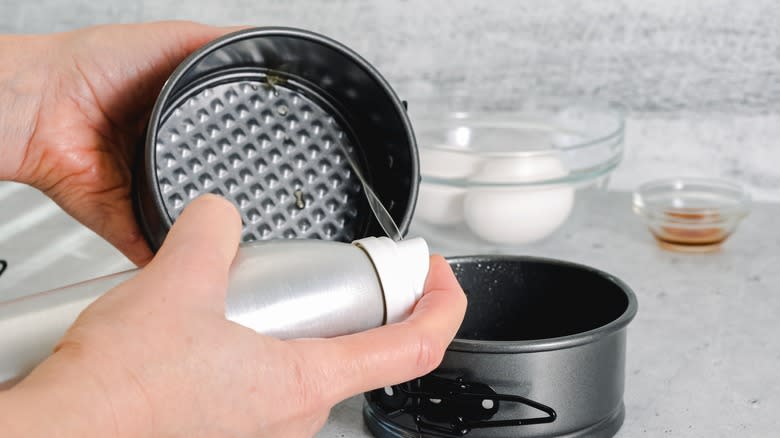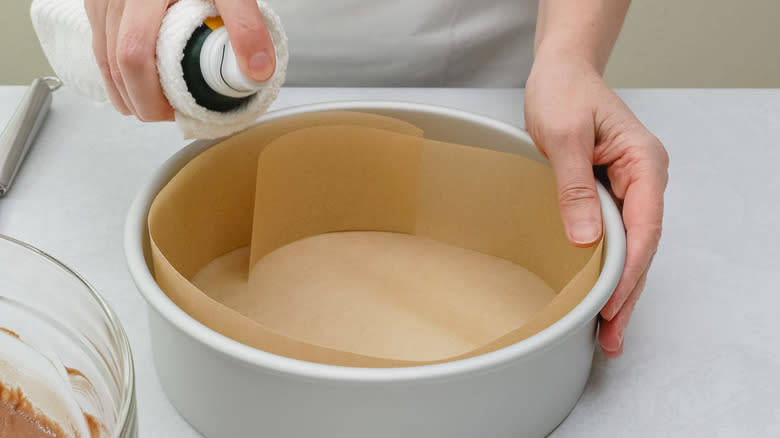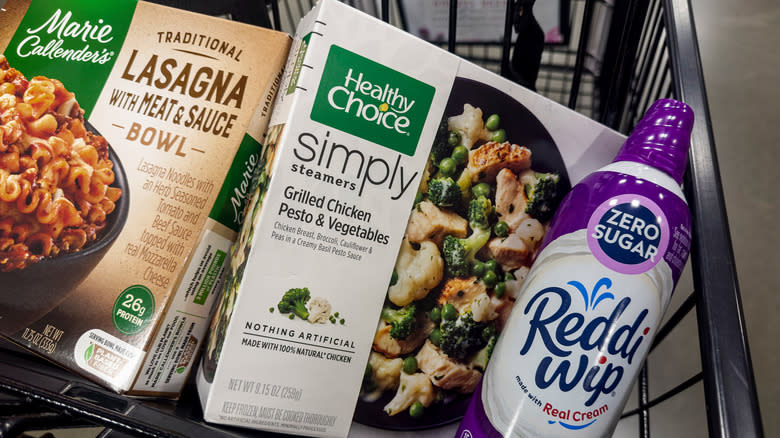A Jury Awards Over $7 Million To A Woman Whose Cooking Spray Exploded

In a lawsuit over consumer cooking spray, a Pennsylvania woman received a jury award equaling $7.1 million in punitive and compensatory damages. The case was filed in Illinois' Cook County Superior Court against Conagra Brands, a major food packaging company, after plaintiff Tammy Reese claimed to have received extensive burns while using a can of Swell cooking spray in May 2017.
In her lawsuit, filed in 2019, Reese claimed the can unexpectedly malfunctioned, expelling and igniting highly flammable chemicals that burned her upper torso, including her face, hands, and forearms. According to legal representation, the injury resulted from a defect in a ventilation mechanism located on the bottom of the can.
In a statement released by Meyers & Flowers, one of the law firms representing Reese and other similar plaintiffs, Reese said, "Nothing can begin to describe the excruciating pain and fear I felt that day. When I learned that countless other people had experienced what I went through and that no recall was ever made, I felt angry. I hope that they can get justice for the pain Conagra caused them to live with for the rest of our lives."
A Conagra spokesperson notes that the specific can design is no longer in production, yet the company stands by its products as being safe and effective with proper use. The verdict will potentially be appealed, but this legal battle was only the first of many to come.
Read more: 11 Cleaning Tips For Keeping Your Oven Spotless
Similar Lawsuits To Follow

Though Reese's lawsuit involved the lesser-known Swell brand, it's not the only cooking spray brand involved in legal issues. The allegedly defective cans in question are implemented in packaging for several store brands as well as the prominent PAM brand, considered America's #1 cooking spray. It's available from Conagra in at least seven iterations, including one sold in a non-aerosol can.
Meyer's & Flowers, along with the plaintiff law firm Koskoff, Koskoff & Bieder, note that the successful Reese verdict is just one of 56 similar legal claims and 61 injured plaintiffs to date. Notably, the cases heading to nationwide state and federal courts have not been filed as class action suits but will stand as individual cases making their way through the legal system. The incidents reportedly occurred in both home and restaurant kitchens, with Reese's injury occurring while employed as a chef at a social club in Shippensburg, Pennsylvania.
The $7.1 million verdict for Reese, which includes $4.3 million in punitive and 3.1 million in compensatory damages, sets a high standard but is far from a guaranteed outcome for similar upcoming cases.
The Issue With The Cans And Company Response

The issue with the aerosol containers holding PAM and other widely sold cooking sprays reportedly began in 2011. The lawsuits claim that Conagra introduced the allegedly faulty design, identified by four u-shaped score marks, as a money-saving technique for cans containing more than 10 ounces of the fluid oil product, which dispenses under pressure. Conagra supplies the canned product for retailers and wholesale retail chains nationwide.
The venting mechanism is supposed to regulate and vent the flow of the flammable product as it ejects from the can, but plaintiffs claim the new design from 2011 is faulty, resulting in "fireball" explosions and causing sometimes permanent damage to the user.
Another contention addressed in the ongoing lawsuits is that unlike with other Conagra Brands recalls, the company reportedly failed to remove all cans from store shelves after discovering the flaw. Even though the can designs were eventually discontinued, J. Craig Smith of Koskoff, Koskoff, and Bieder claims that no recall was issued for cans already on the market.
Conagra Brands, which is also the parent company for popular foods such as Reddi-wip, Chef Boyardee, Marie Callender's, Slim Jim, Hunts, and Swiss Miss, rejects the validity of the verdict, stating that food and customer safety is always the company's top priority.
Read the original article on Tasting Table.

